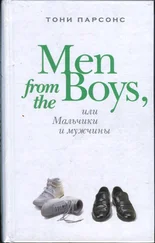He typed “perfectly” and then added “loud and clear.” One girl was hugging the other from behind and had a tattoo of ivy and was wearing wings. It wasn’t recorded. They started talking to him. They were Internet whores. He kept chatting with the teenage-photo woman as he watched the girls in the little side window out of the corner of his eye. He could place an order for any of the dirty thoughts running through his head just by sending text messages. Opportunists. They had caught him horny and distracted. Finally, he got rid of the chat, unbuttoned his pants, and when he was at his most defenseless, Marga suggested they meet up. They were much closer than he’d realized, they worked out of Lloret.
He opened the other door of the closet and pulled the case off the shelf. It was a wooden case with a leather strap and inside was a shotgun, in pieces. What’s a shotgun worth? It made no sense to pawn it for clothes; you have to really be scraping bottom before clothes are more useful to you than a shotgun.
He put the case on the bed, opened it, and studied the pieces. They smelled of gunpowder and grease. They looked new considering their age, dark, shiny, and anesthetized by the padded interior: the black barrel, the varnished wood of the butt, the cylindrical cartridges with their purplish shells and golden caps, the white instruction pamphlet with the Beretta logo he’d used to learn to put it together years ago. Without Ahmed, he could now carry it under the seat in his truck, feel its energy in his balls, or, even better, hang it from the ceiling: a cascade of firepower over his skull, a radiation shower of wood, iron, and gunpowder. A man on foot wasn’t the same as a man in a truck. A man with his hands in his pockets wasn’t the same as a man with a shotgun.
He thought about Cindy again. Maybe he was falling in love; he really wanted to see her again. And it wasn’t even springtime. He had met three fuckable chicks in just one day: Cindy, the widow — with the morbid appeal of that black dress against her milky skin — and that little whore with the ringlets. She wouldn’t last long where she was. He’d have to hurry if he wanted a taste of her. Have her come up into the cab, sit her down on top of him, and ask her to glance up at the ceiling while he was screwing her. Why? she would ask. What’s there?
“You’re giving me the truck but not the shotgun?” Miqui had complained to his father.
“It was a present from my mother. It was my grandfather’s.”
“That was so you could defend us. You don’t have to do that anymore.”
But he didn’t really know what his great-grandfather was doing with a shotgun, or why it had been in his father’s room for so many years. He only knew about its existence after his mother died. Every evening, after locking the truck in the lumber warehouse, his father picked him up at his Aunt Marta’s house. Aunt Marta would get Miqui from school at five and give him a snack. His father arrived later and walked him home down streets that smelled of fried food, carrying a basket filled with the dinner his aunt had prepared for them.
One night, his father was late. His aunt sat by the phone, but his father didn’t call. He ate dinner with her. Later, on the way home, his father’s hand was trembling and sweaty, and when they arrived he asked him to wait in the dining room instead of going to bed. He came out of his bedroom with the wooden case. It was the first time Miqui saw it. His father placed it on the table and had the shotgun assembled in five seconds — it would take him five minutes now, if he could do it at all.
“When you’re scared,” he said, “remember this.”
It was he who had been scared that night, more than his father. He was a twelve-year-old boy, and he liked the world better without shotguns. A decade and a half later, when, after the accident, his father gave him the truck, Miqui asked him for the shotgun too. The world was better but more complicated than when he was a child.
Now he put it together, placed the cartridges in his pocket, put the case away again, and took the gun to the dining room. Yesterday’s dinner plates were still on the table. He took aim at a bottle. Then he slowly shifted the barrel and aimed at the pile of dirty plates in the sink. The shotgun wasn’t loaded. He fired. He took aim, fired, and cocked it again without ammunition. When he got tired of playing, he leaned it against the table with the barrel toward the ceiling. He cleared the table and swept the breadcrumbs up off the floor. A while back they had fired the cleaning lady, a short, stocky Bolivian woman, with the same sort of body he’d expect to find under Cindy’s clothes — South American chicks came in packages with short expiration dates. She’d vanished from town just like Ahmed, and now the house was filled with dirty clothes, they were everywhere. His father just lay about all day. If he hadn’t let himself get ripped off, they’d be able to hire someone to clean and cook once in a while, or he could live in a nursing home. But the banks worked together to prey on the weakest, the most helpless, on people who felt they were protected, people who had grown trusting over the course of their lives. And when they had them where they wanted them, they gave them what they deserved. There were about twenty people in town who’d been fleeced; every once in a while they held meetings, but Miqui and his father never went, why bother, when it mortified his father and he already knew there was nothing they could do.
There was a bit of milk left in the carton, but he wasn’t sure if it was sour, so he put it in his coffee along with four teaspoons of sugar. He picked up the shotgun again and laid it on the table. The old man was on the other side of the door, awake on the double bed. Every morning he turned on the TV and waited in his room until Miqui cleared out. His son didn’t return home until the night or early morning. He spent his days watching the same programs: talk shows and news programs that confirmed it was best not to go out. On the days when Miqui stayed home, he made his father get out of bed. He would shout at him, and soon the man would stick his head out of his room, his pajamas bloated by his diaper. He’d drag himself to the bathroom like the skeleton of a frightened rabbit. The smell of piss wafting through the house. He washed and changed his own diaper, for the moment, but that was a ticking time bomb.
He never went out. He never saw anyone. He didn’t talk to Miqui. Just television. It was his way of complaining, letting himself drop, depressed, upon his son. Old people are selfish, their weakness makes them distrusting, like the old man with the cane in Vidreres the day before, wanting to look pitiful, still milking a war he’d seen from afar as a schoolboy. What more could young people today ask for than a war and at least the hope of winning it? They consoled themselves by massacring soldiers on a PlayStation or Wii. They couldn’t prove themselves out in the world, they weren’t like him, who had known how to make a life for himself, they were penned in like industrial pigs or hens or cows; today, housing developments were warehouses for young people, buildings to store them in, stalls with the lights on twenty-four hours a day, each with their girl or boy or group of siblings inside, facing a screen like lambs at the trough. He knew a ton of people like that, always connected when he got online, always available on the Internet but only on the Internet, he had friends from high school who ended up settling in to live in the virtual world instead of the physical, gravitational one — exiled to the hidden world, all tangled up together in a mess of circuits, chained by Wi-Fi to their computers, tablets, and cell phones, hypnotized, captured by the spider who lived with them. These millennials, young people who didn’t study or work, who couldn’t do either. They’re born already knowing, the mutation has occurred, the youngest ones have adapted. Sometimes he envied them. He had to struggle with the truck to make ends meet. He was part of a hinge generation between the old people who had everything and the young who had nothing, but because they had nothing, they were spared from anxiety. There were still girls in the chat rooms who tried to get together with him. They asked to see him. They wanted to meet. They wanted to go out. They wanted to extricate themselves. But how could they survive out there, when there’s nothing left for them?
Читать дальше












